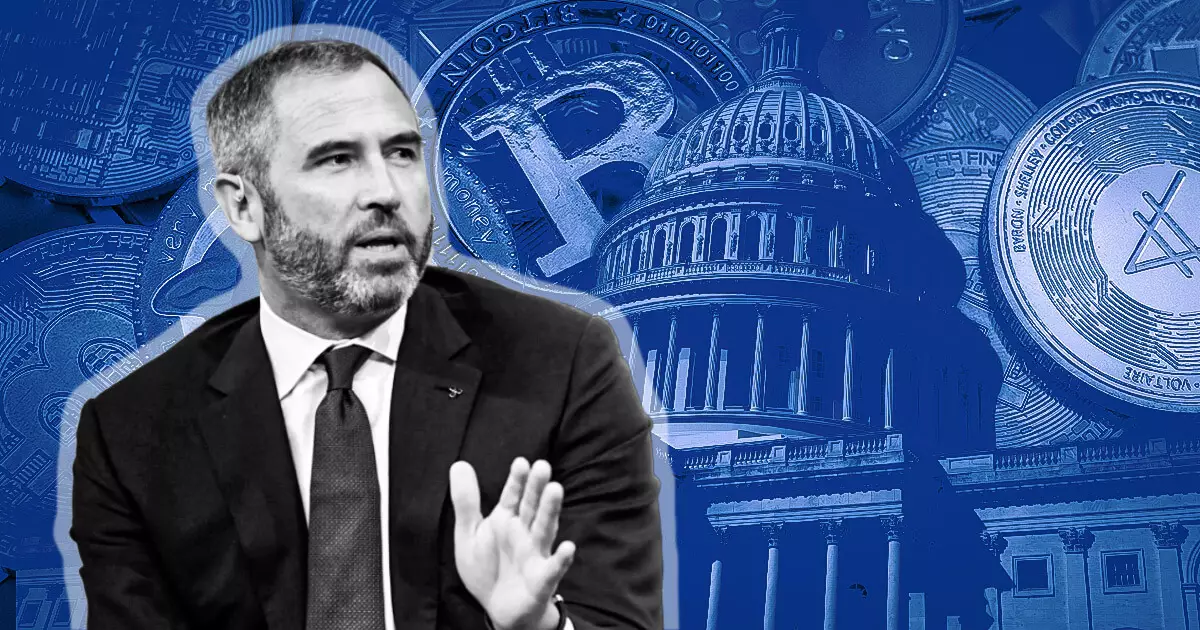Ripple CEO, Brad Garlinghouse, along with other top executives of the company, recently visited Washington, D.C. to meet with members of Congress. The purpose of their visit was to discuss the regulatory clarity of the cryptocurrency industry, which continues to face uncertainty. In a social media post, Garlinghouse highlighted the significance of engaging with elected officials who propose bills in order to achieve the much-needed regulatory clarity.
Unfortunately, Garlinghouse did not disclose the names of the lawmakers they met with, nor did he provide any specific details about the discussions that took place. However, the fact that Ripple’s CEO and other executives are actively seeking opportunities to communicate with Congress demonstrates their commitment to addressing the regulatory challenges faced by the crypto industry.
Ripple’s Chief Legal Officer, Stuart Alderoty, echoed Garlinghouse’s sentiments on regulatory clarity. In a separate social media post, Alderoty stressed the importance of maintaining checks and balances while waiting for legislative clarity from Congress. This implies that even in the absence of concrete regulations, industry players should continue to uphold ethical standards to prevent abuse.
During their visit to Washington, D.C., Garlinghouse and Alderoty also made stops at the U.S. Supreme Court and the U.S. Securities and Exchange Commission (SEC). While it is unclear if they had a meeting with any officials at the SEC, Garlinghouse’s posts confirm their presence at these key institutions.
The purpose of these visits remains unknown, but it demonstrates Ripple’s determination to engage with prominent regulatory bodies and to contribute to the ongoing conversations about the future of the crypto industry. By physically being present at these institutions, Ripple establishes itself as an advocate for regulatory clarity and a proactive participant in shaping the regulatory landscape.
Ripple’s visit to Washington, D.C., follows their partial legal victory against the SEC in July. Judge Analisa Torres ruled that Ripple’s sale of XRP and its token distributions did not amount to the sale of an investment contract. While the SEC has sought an interlocutory appeal, this ruling has provided some respite for Ripple and creates a potential precedent for future regulatory cases involving cryptocurrencies.
Despite Ripple’s legal win, the regulatory environment for the crypto industry in the United States remains uncertain. The SEC and the Commodity Futures Trading Commission (CFTC) have initiated enforcement actions against major crypto companies, such as Binance and Coinbase. Additionally, several lawmakers in the country are working on legislation aiming to provide regulatory clarity for digital assets.
The efforts of lawmakers to address the regulatory challenges of the crypto industry have gained support from various quarters. Senator Elizabeth Warren’s bipartisan cryptocurrency anti-money laundering bill, for example, has received backing from other lawmakers. These initiatives are crucial in establishing a framework that promotes innovation while ensuring consumer protection and market integrity.
Ripple’s CEO and executives’ recent visit to Washington, D.C., signifies the company’s endeavor to tackle the regulatory challenges plaguing the cryptocurrency industry. By engaging with members of Congress and key institutions, Ripple aims to contribute to the ongoing discussions surrounding regulatory clarity. However, the industry continues to operate in a state of uncertainty, calling for concerted efforts from stakeholders to establish a comprehensive regulatory framework that fosters innovation while maintaining trust and protection for users.

